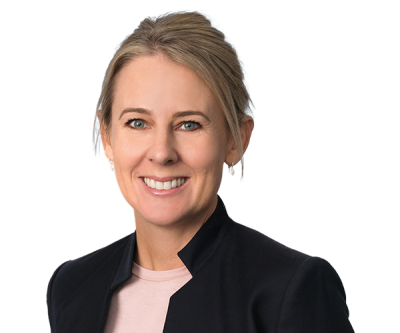
Cayman Islands Foundation Companies for DAOs, Defi and NFTs
The rise of cryptocurrencies and digital assets (crypto, for convenience) has led to the creation of many new and innovative projects, particularly in decentralised finance (defi), non-fungible tokens (NFTs) and play to earn gaming (P2E) where decentralised autonomous organisations (DAOs) have become the model of choice.
For almost all such projects, it will be necessary to establish an entity to assist with any formal legal actions which might be required in connection with the project (particularly as a DAO does not have legal personality). Of the options and jurisdictions available, the Cayman Islands (Cayman) foundation company (foundation) has proven to be a particularly popular vehicle for use in conjunction with crypto projects and DAOs.
In this guide, we highlight some of the primary reasons why Cayman foundations are well suited for DAOs, NFTs and defi their practical uses and some relevant considerations that may apply. One of the most important considerations, as explained further below, is the Cayman Virtual Assets (Service Providers) Act (VASP Act) and how it might impact a project.
Why foundations for DAOs, defi and crypto
The basics of a Cayman foundation are set out in our guide here. In brief, a foundation is a hybrid corporate vehicle unique to Cayman with separate legal personality and limited liability. It can however function like a trust or foundation, with the potential to identify beneficiaries to receive benefits from the foundation over time, and to provide for certain powers to be held by persons or entities other than the directors of the foundation. Importantly for decentralised projects, a foundation can cease to have members (i.e. shareholders) making it an ownerless vehicle.
In a crypto context, foundations may be an ideal option for a variety of often complimentary reasons:
- Ownerless – as above, a foundation can cease to have shareholders or members, and so fits nicely with the decentralised ethos of DAOs and defi (where there is often a desire for ownership and control to be decentralised) versus traditional entities which typically have shareholders or owners.
- Corporate status – because a foundation has separate legal personality, it can execute contracts and token agreements and open exchange or bank accounts.
- Flexible control mechanisms – given it is possible to build in control mechanisms to be held by persons other than the directors, the foundation can be established so that the founding or core team members can have a say in the direction of the foundation (usually achieved through the establishment, for example, of supervisor or advisory committees).
- Speed – foundations can be established quickly in a basic form once onboarding and KYC processes are completed (with express incorporation possible within 24 hours for a small fee).
- Recognised structure – given the widespread use of foundations in connection with crypto projects, Cayman foundations are familiar to many industry participants and in particular venture capital (VC) investors.
- Clear regulatory regime – Cayman (when compared with other jurisdictions which might be under consideration) has a clear and favourable regulatory framework in place making it an attractive option to establish crypto related entities.
- Quality service providers – Cayman has a wide range of excellent local service providers familiar with crypto and willing to provide registered office services, as well as individuals to take on the roles of foundation secretary, directors and supervisors.
- Bylaws – where privacy is of concern, it is possible to include more specific details of how the foundation is to function in practice in separate bylaws which are not filed with the constitutional documents.
- Tax advantages – whilst usually not the primary driver, the tax efficiencies offered by Cayman as a jurisdiction, such as an absence of corporation, capital gains and income taxes are often an added bonus.
How are foundations used in crypto?
On account of their flexible nature, there is almost no limit to how a foundation might be structured and used in connection with crypto projects. By way of example, a foundation could:
- Provide a legal ‘wrapper’ (or corporate personality) for DAOs and defi projects;
- Act as a service provider for DAOs and defi projects by signing documents and engaging developers or consultants on behalf of the DAO;
- Act as a fundraising vehicle for early stage and VC private funding (something expressly provided for by the VASP Regulations as noted below);
- Hold a projects treasury assets to pay for services that are needed on an ongoing basis;
- Provide a vehicle for airdrops, which can be an effective way to promote decentralisation, and grants to support those interested in helping a project;
- Act as a parent or holding entity where subsidiaries carry out functional activities for the project are better suited to other jurisdictions in the particular circumstances; and
- Provide marketing and development services for NFTs, P2E games and metaverse projects.
Relevant considerations
Even though foundations can be established quickly, careful analysis is still required at the outset as to the regulatory, tax and practical considerations which might be in play for any given project. As each project or DAO is different it is not possible to outline all potential considerations but the list below contains some common considerations:
- VASP Act - for any project the first consideration is the Virtual Assets (Service Providers) Act (the VASP Act) which regulates certain crypto related activities. See our guide here for further details of the VASP Act and the services it covers.
- Other Cayman laws and regulations – outside of the VASP Act it is often necessary to consider other financial services laws and regulations which may be engaged by the proposed activities of the foundation. That will often include the Securities Investments Business Act and the Private Funds Act together with economic substance and AML and KYC regimes.
- The onshore position – irrespective of the legal position in Cayman such as under the VASP Act, it is critical that quality legal, regulatory and tax advice is obtained in early course from advisors in jurisdictions with which the founding team and project are connected to ensure any obligations are met and to avoid any unwanted surprises.
- Local service providers – all Cayman foundations must have a registered office and secretary which hold the requisite Cayman licences. In addition, it may be necessary to engage a local service provider to act as supervisor (if the foundation ceases to have members) and independent directors. These services usually come with an annual cost depending on the nature of the project and the roles required.
As with all structuring of this nature, quality and carefully considered legal and other advice should be obtained from professional advisors in this space in early course to avoid any unwanted surprises.



